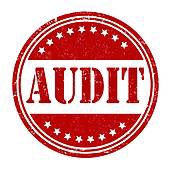The Florida Department of Revenue (DOR) has traditionally issued two different types of sales and use tax audit notices. These are the DR-840 “full” audit notice that was traditionally issued from a local department of revenue office and the DR-846 “limited scope” audit notice traditionally issued out of the main office in Tallahassee.
In the past the DOR was fairly standard on how these two audits were approached, but the DOR has been changing their procedures recently on how they expect their auditors to conduct these audits.
DR-846, “limited scope”, audits (called this because it says limited scope at the top of the notice!) were traditionally limited to one issue. These were also called “desk” audits as you could provide information electronically and the auditor would not visit your place of business. The issues were usually commercial rent or purchases made from out of the state or out of the country. Auditor’s used to inform you what the issue was and allow you to address it with proper documentation on that issue without going through a full audit.
DR-840, “full” audits, are also called “field” audits. This is because an auditor from your local DOR office would want to visit your place of business and conduct the audit on site. Florida statutes do state that they have a right to “tour” your facilities, but an audit does not have to take place at your business. Auditors would state that they were “required” to conduct a tour and conduct the audit on site. This is not in the statutes but rather was a “requirement” of their supervisors. I feel the main reason they pushed for a tour is because once in the door they feel they have the right to try and intimidate taxpayers for information and pry into documents before a taxpayer has a chance to consider if the documentation or information is actually necessary to the audit. I have had many discussions with auditors on what was “required” during a field visit and their definitions seemed to depend on the auditor. I have always believed that just the presence of the auditor at a place of business causes an undue burden on the taxpayer as their mere presence can affect employees, customers, and the overall businesses workflow.
Awhile back Tallahassee determined that going forward there would be no difference between a DR-846 and a DR-840. The DR-846 notices would be considered “full” audits going forward. This of course caused issues as the DR-846, as I stated, says “limited scope” right on the form. The implementation of this was handled differently by different supervisor in Tallahassee. Some demanded full documentation, some continued to allow for limited scope in some situations, and some just closed the file and sent it to the local office to issue a “full” DR-840. The DOR now states that they will issue both DR-846’s and DR-840 out of Tallahassee to correct this issue, but I have yet to hear how the determination of which form they will issue is to take place.
This change may have been affected by the recent COVID issues and the handling of “field” audits. Once the pandemic took effect auditors that at one time were “required” to go to the taxpayer’s place of business, as it was necessary to the audit process, are now being told they are not allowed to visit the taxpayer in person at all. Yet, somehow audits are continuing to be completed. Also due to COVID the DOR has not issued any new sales and use tax notices for the last several months. Because they have not been issuing any new notices, and the handling of current ongoing audits, auditors across the state are beginning to run out of work and I have heard rumors that this is going to change soon and taxpayers can expect that a flood of new notices for sales and use tax will be going out as soon as the department is allowed to begin issuing notices again.
If you get either of these notices from the DOR I highly recommend you get competent representation before meeting with or providing information to an auditor. The type of notice you receive is only one of many issues that can arise inside an audit that can dictate how best to respond to an auditor’s requests. The audit process can be intimidating and confusing and any mistakes or misunderstandings with an auditor can have severe consequences down the road on any tax, interest, or penalties assessed.
If you have any questions or concerns on anything contained within this article or on Florida sales and use tax audits in general feel free to contact me at your convenience.
 About the author: Steven C. Middel is a senior auditor who joined the Law Offices of Moffa, Sutton, & Donnini, P.A. in 2015. Mr. Middel concentrates in the following areas of Florida sales and use tax: Audit, protest, collections, and criminal defense. Mr. Middel joined the firm after spending almost 5 years as a multi tax auditor for the Florida Department of Revenue. You can learn more about Mr. Middel in his BIO HERE.
About the author: Steven C. Middel is a senior auditor who joined the Law Offices of Moffa, Sutton, & Donnini, P.A. in 2015. Mr. Middel concentrates in the following areas of Florida sales and use tax: Audit, protest, collections, and criminal defense. Mr. Middel joined the firm after spending almost 5 years as a multi tax auditor for the Florida Department of Revenue. You can learn more about Mr. Middel in his BIO HERE.
At the Law Office of Moffa, Sutton, & Donnini, PA, our primary practice area is Florida taxes, with a very heavy emphasis in Florida sales and use tax. We have defended Florida businesses against the Florida Department of Revenue since 1991 and have over 100 years of cumulative sales tax experience within our firm. Our partners are both CPAs/Accountants and Attorneys, so we understand both the accounting side of the situation as well as the legal side. We represent taxpayers and business owners from the entire state of Florida. Call our offices today for a FREE INITIAL CONSULTATION to confidentially discuss how we can help put this nightmare behind you.
ADDITIONAL RESOURCES
Florida Sales Tax Audit Help, published August 24, 2020, by James Sutton, CPA, Esq.
FL Sales Tax Audit - Know Your Rights, published August 26, 2020, by Steve Middle
Go to Jail for Not Paying Florida Sales Tax?, published November 3, 2013, by James Sutton, CPA, Esq.
Florida Sales Tax Rate on Commercial Rent 2020, published January 6, 2020, by James Sutton, CPA, Esq.
What Services Are Subject to Sales Tax In Florida, published May 01, 2012, by James Sutton, CPA, Esq.

